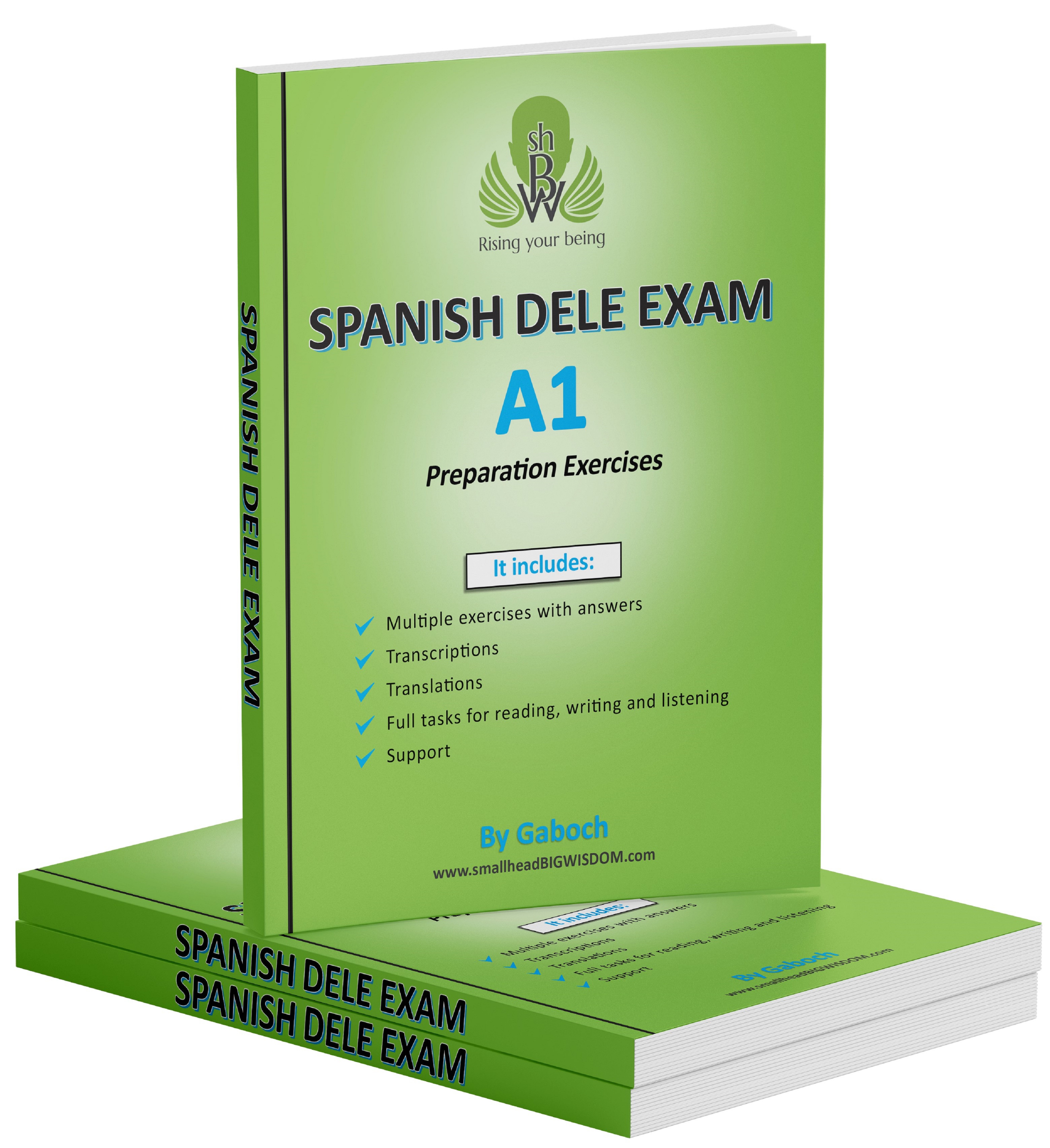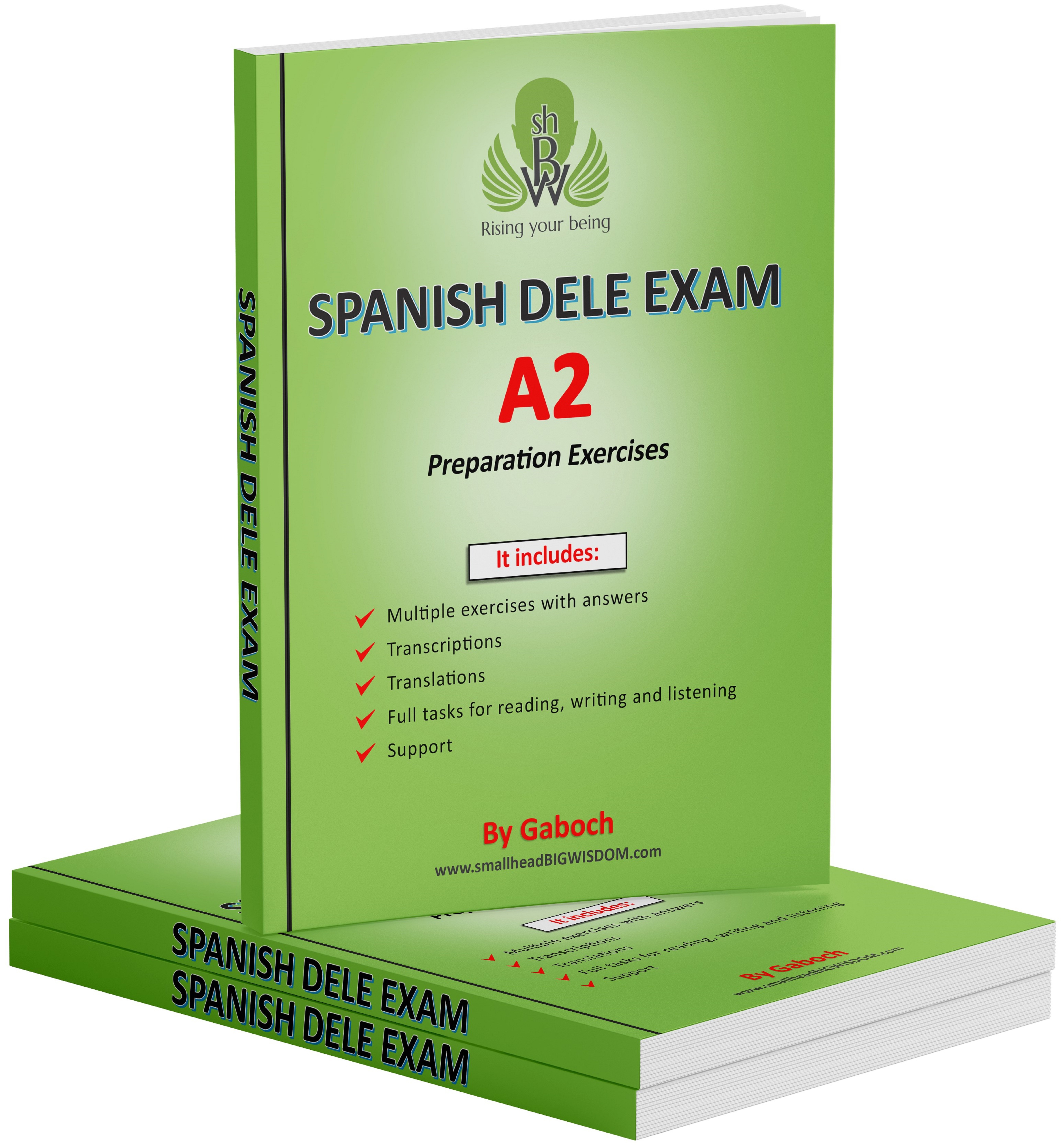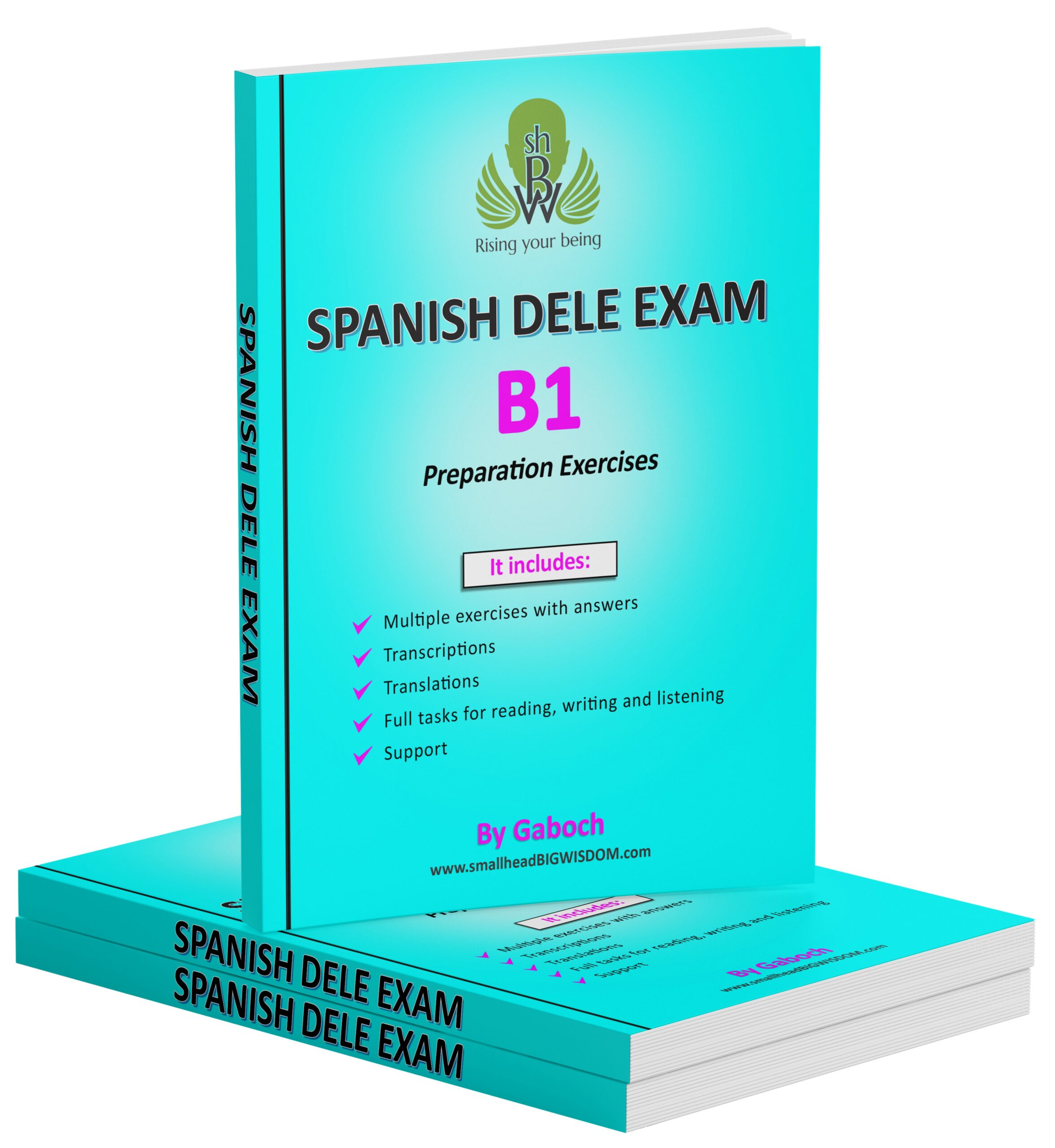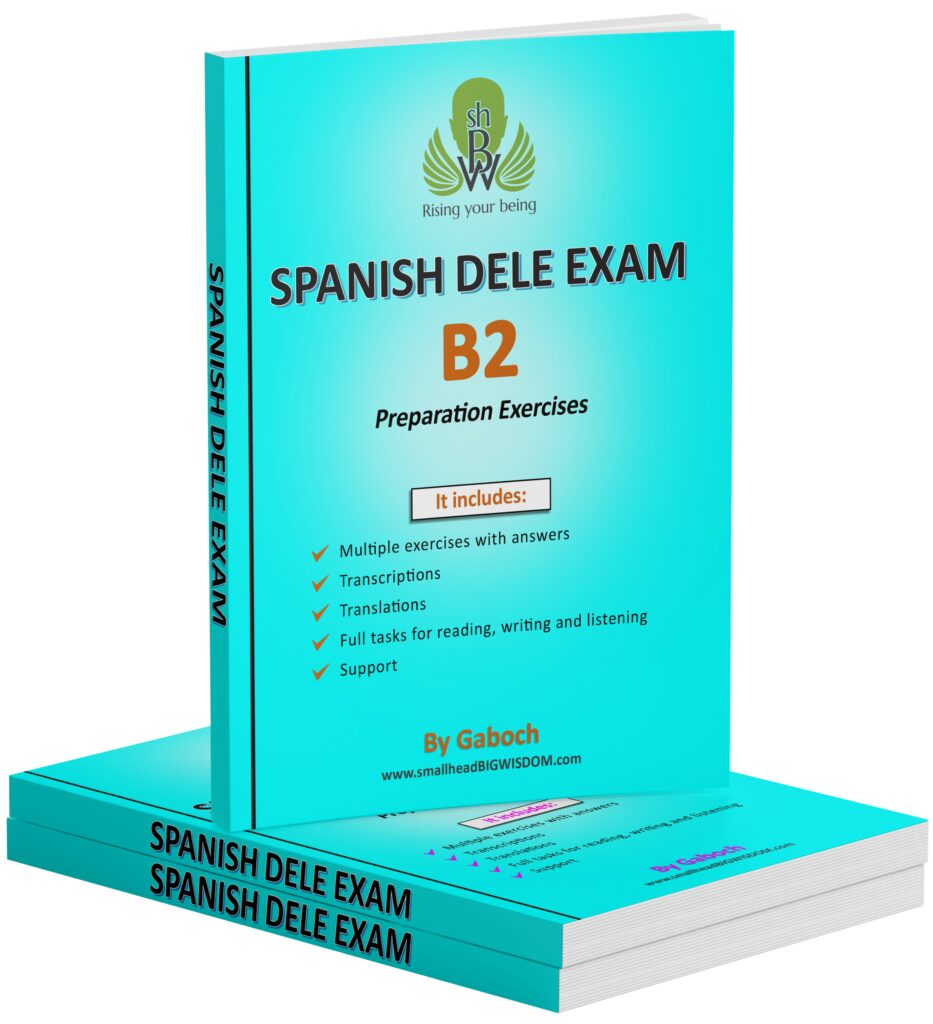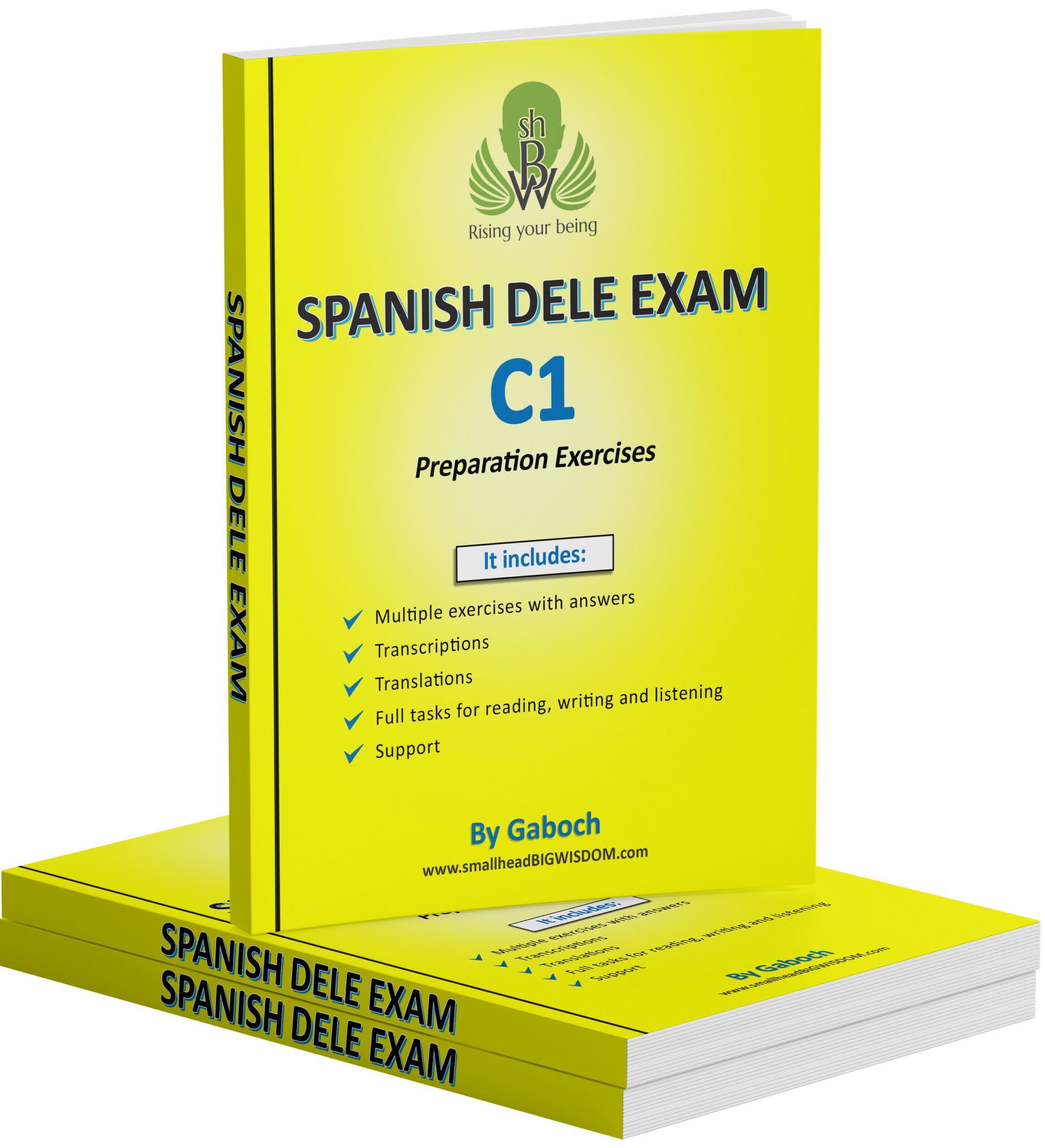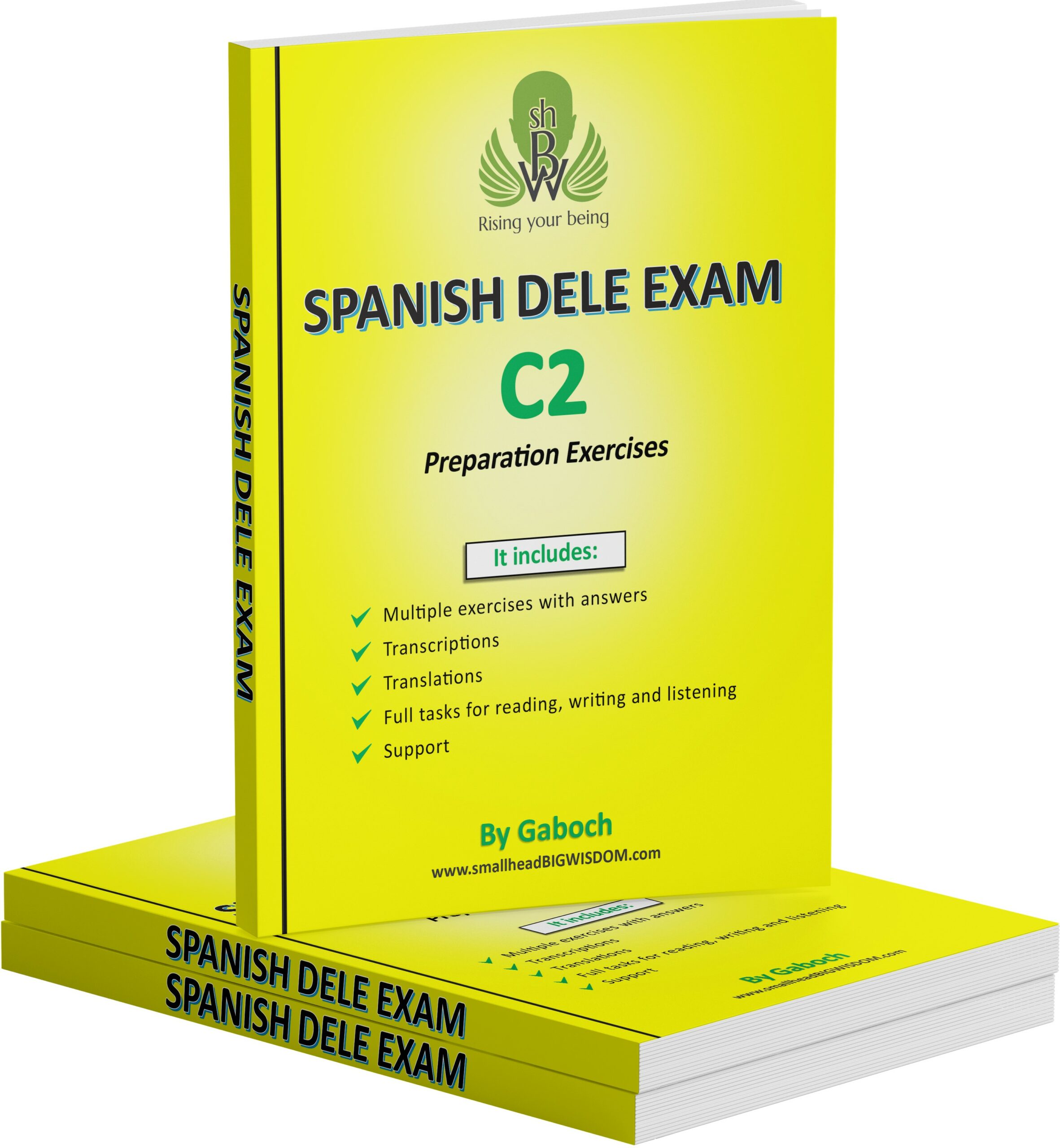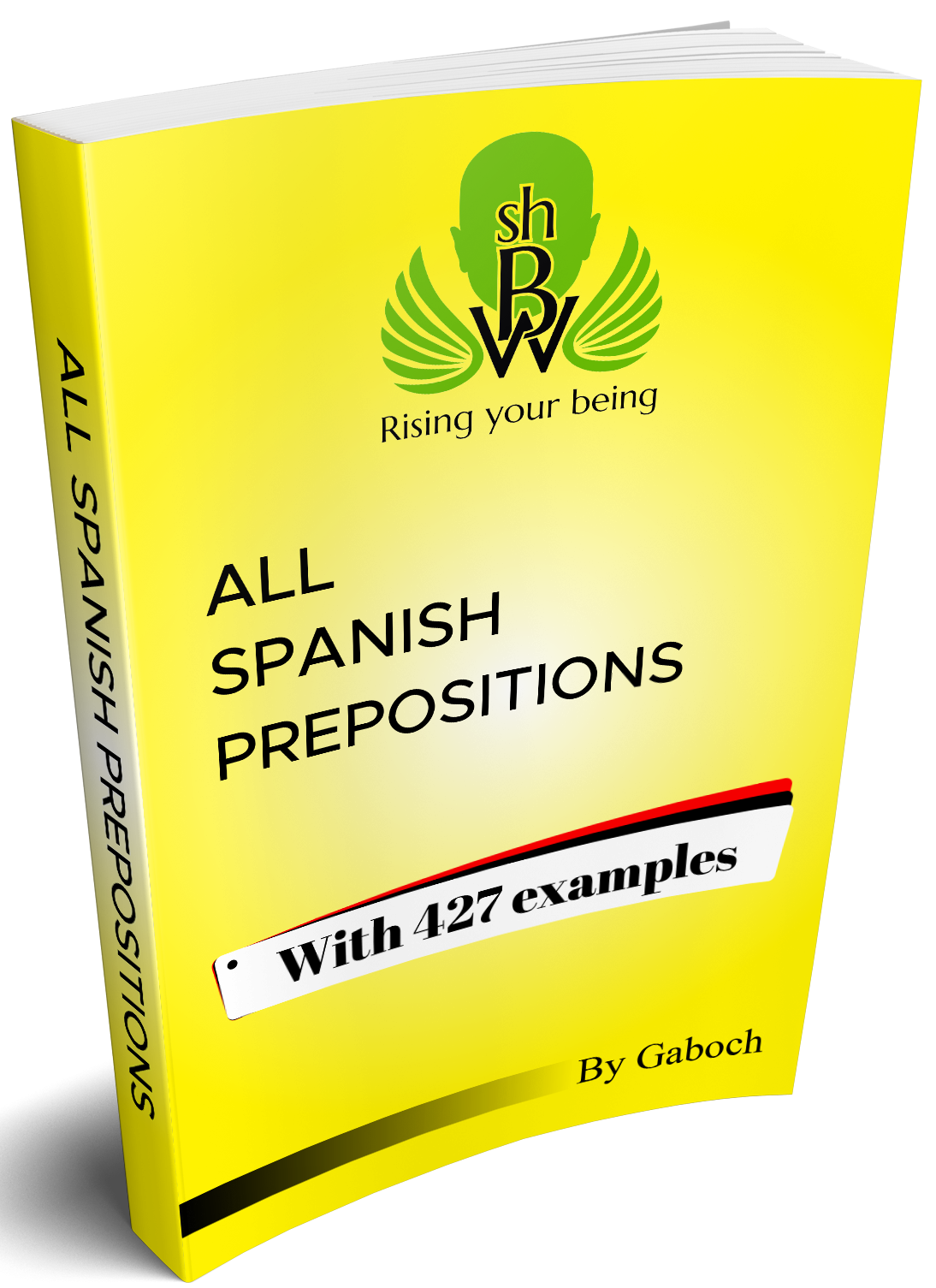smallhead BIGWISDOM
Rising your being
Indicative – Present perfect in Spanish
We use the Present Perfect to express that an action happened at an unspecified time before now.
Examples:
Affirmative Form:
- Yo he visto esa película veinte veces (I have seen that movie twenty times)
- Joan ha estudiado dos idiomas extranjeros (Joan has studied two foreign languages)
- Ellos han trabajado mucho pero nadie lo ha notado (They have worked a lot, but nobody has noticed it)
- Vosotros habéis hecho lo más indicado (You have done the correct thing)
Negative Form:
- Yo no he visto esa película veinte veces (I haven’t seen that movie twenty times)
- Joan no ha estudiado dos idiomas extranjeros (Joan hasn’t studied two foreign languages)
- Ellos no han trabajado mucho aunque nadie lo ha notado (They haven’t worked a lot, although nobody has noticed it)
- Vosotros no habéis hecho lo más indicado (You haven’t done the correct thing)
The Present Perfect conjugation of the model regular verbs (ar, er, ir) is:
Amar | Correr | |
Yo | he amado | he corrido |
tú | has amado | has corrido |
usted, él, ella | ha amado | ha corrido |
nosotros o nosotras | hemos amado | hemos corrido |
vosotros o vosotras | habéis amado | habéis corrido |
ustedes, ellos, ellas | han amado | han corrido |
Partir | |
Yo | he partido |
tú | has partido |
usted, él, ella | ha partido |
nosotros o nosotras | hemos partido |
vosotros o vosotras | habéis partido |
ustedes, ellos, ellas | han partido |
Get the book about 1100 English-Spanish Cognates!
Bonus: Audio pronunciations
Get it now!
(See Table of Content)
